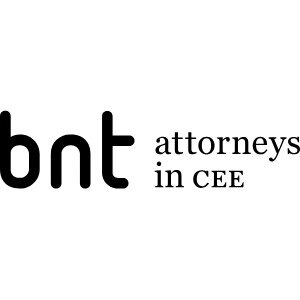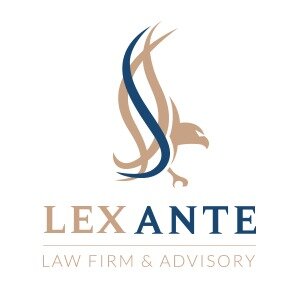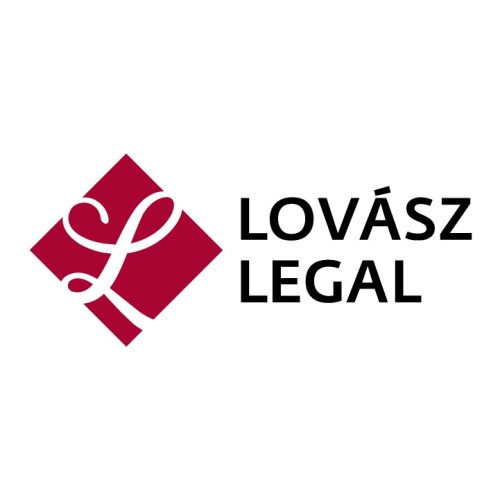Best Structured Finance Lawyers in Bratislava
Share your needs with us, get contacted by law firms.
Free. Takes 2 min.
List of the best lawyers in Bratislava, Slovakia
About Structured Finance Law in Bratislava, Slovakia
Structured finance refers to complex financial instruments and arrangements that are typically used by companies, financial institutions, and investors to finance assets, manage risks, or optimize capital structures. In Bratislava, structured finance transactions might include securitizations, syndicated loans, derivatives, and asset-backed securities. The legal framework governing these transactions is influenced by local Slovak laws as well as European Union regulations, which are directly applicable in Slovakia. Lawyers in this field guide clients through structuring, negotiating, and executing deals while ensuring full compliance with relevant rules and protecting stakeholder interests.
Why You May Need a Lawyer
Structured finance involves intricate legal and financial considerations. You may require a lawyer in Bratislava for structured finance matters if you are:
- Establishing or participating in a syndicate or consortium for large loans
- Engaged in asset securitization or mortgage-backed securities
- Structuring collateralized debt obligations or similar instruments
- Negotiating complex lending arrangements between multiple parties
- Needing to comply with national and EU financial regulations and reporting standards
- Managing or mitigating risks associated with derivatives or credit swaps
- Protecting your interests during the enforcement of securities or in case of default
- Facilitating cross-border structured finance deals
- Handling tax implications and seeking the most efficient structuring options
- Being involved in regulatory disputes or investigations concerning structured finance products
Local Laws Overview
Slovakia's structured finance landscape is shaped by a mix of national and European regulations. Key legal aspects to consider in structured finance in Bratislava include:
- Financial Market Supervision: The National Bank of Slovakia regulates and supervises financial institutions and structured finance products.
- Banking and Securities Law: Slovak law, including the Act on Banks and the Act on Securities and Investment Services, governs various financial instruments and market practices.
- EU Financial Directives: European directives like MiFID II, the Prospectus Regulation, and the Capital Requirements Regulation directly apply and set out investor-protection and disclosure obligations.
- Contract Law: The Civil Code and Commercial Code lay out the rules for drafting enforceable contracts and loan agreements.
- Taxation: Slovak tax laws impact transactions, demanding careful structuring to manage VAT, withholding tax, and income tax exposure.
- Bankruptcy and Enforcement: Local insolvency laws affect the treatment and enforcement of structured finance arrangements in case of counterparty default.
- Anti-money Laundering: Strict standards must be met to prevent illicit financial activity in structured finance deals.
Frequently Asked Questions
What counts as structured finance in Slovakia?
Structured finance includes arrangements such as securitization, syndication, collateralized loan obligations, and bespoke lending structures not covered by traditional bank financing.
Do international investors face restrictions when participating in Slovak structured finance deals?
Generally, there are few restrictions for international investors, but transactions must comply with Slovak and applicable EU laws, including licensing and reporting requirements.
What is the role of the National Bank of Slovakia in structured finance?
The National Bank of Slovakia supervises authorized financial institutions, reviews certain structured products, and ensures compliance with local and EU regulations.
Are securitizations common in Bratislava?
Securitization is not as widespread as in Western Europe but is growing due to international investment and evolving capital market infrastructure.
What legal documents are involved in typical structured finance transactions?
Common documents include loan agreements, security documents, trust deeds, intercreditor agreements, and disclosure documents required by regulators.
What kind of due diligence is necessary?
Due diligence typically involves reviewing asset portfolios, governance structures, regulatory compliance, tax implications, and the creditworthiness of parties.
How are defaults handled under Slovak law?
Defaults are handled according to contract terms and applicable insolvency laws, with options such as enforcement of security, restructuring, or court-supervised insolvency.
Can structured finance transactions be cross-border?
Yes, cross-border transactions are permitted, but they often require careful legal structuring to comply with both Slovak and foreign legal requirements.
Is legal advice mandatory for structuring finance deals?
While not mandatory, legal advice is strongly recommended due to the complexity of regulatory, tax, and contractual issues involved in these transactions.
Are there tax implications I should consider?
Yes, structured finance transactions can have significant tax consequences, including VAT, income tax, and withholding tax, so expert legal and tax advice is essential.
Additional Resources
Several resources and organizations can provide guidance or additional information on structured finance in Bratislava:
- National Bank of Slovakia - Regulator of the financial market and structured finance
- Slovak Ministry of Finance - Responsible for fiscal legislation and tax matters
- Slovak Bar Association - Directory of experienced finance lawyers
- Slovak Banking Association - Provides industry standards and information
- European Securities and Markets Authority (ESMA) - EU regulator offering guidance on cross-border transactions
Next Steps
If you need legal assistance with structured finance in Bratislava, consider the following steps:
- Assess your specific needs and define the scope of your transaction or legal concern
- Contact a lawyer or law firm with expertise in Slovak and EU structured finance law
- Prepare relevant documents such as financial records, existing agreements, and communications
- Discuss your objectives, timelines, and any concerns about compliance or risk management
- Ensure ongoing communication with your legal advisor throughout the transaction process
- Stay updated about regulatory changes and market developments that may impact your deal
Engaging an experienced legal professional will help ensure that your structured finance matter is executed efficiently and in full compliance with Slovak and European laws.
Lawzana helps you find the best lawyers and law firms in Bratislava through a curated and pre-screened list of qualified legal professionals. Our platform offers rankings and detailed profiles of attorneys and law firms, allowing you to compare based on practice areas, including Structured Finance, experience, and client feedback.
Each profile includes a description of the firm's areas of practice, client reviews, team members and partners, year of establishment, spoken languages, office locations, contact information, social media presence, and any published articles or resources. Most firms on our platform speak English and are experienced in both local and international legal matters.
Get a quote from top-rated law firms in Bratislava, Slovakia — quickly, securely, and without unnecessary hassle.
Disclaimer:
The information provided on this page is for general informational purposes only and does not constitute legal advice. While we strive to ensure the accuracy and relevance of the content, legal information may change over time, and interpretations of the law can vary. You should always consult with a qualified legal professional for advice specific to your situation.
We disclaim all liability for actions taken or not taken based on the content of this page. If you believe any information is incorrect or outdated, please contact us, and we will review and update it where appropriate.














